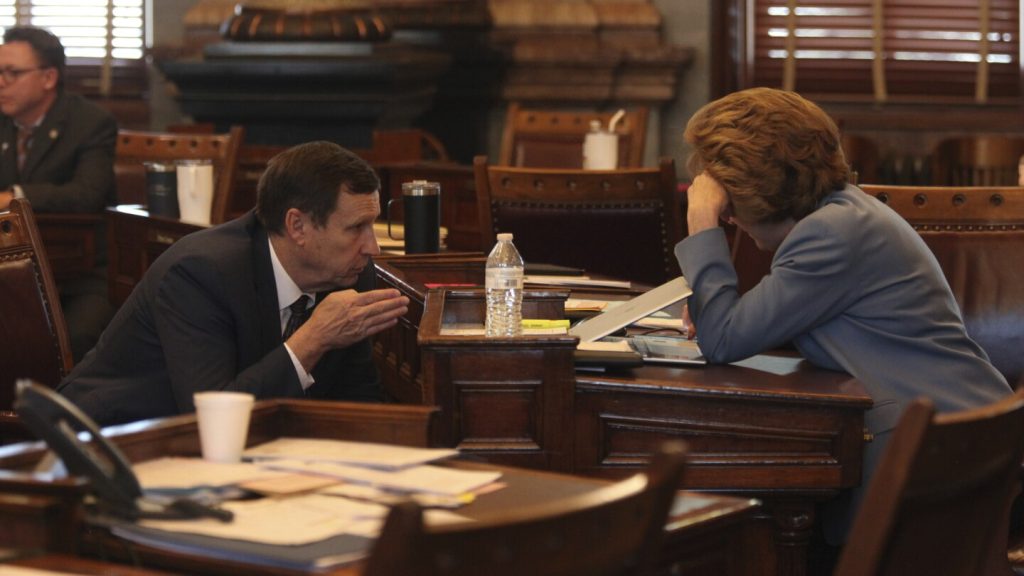Abortion opponents in Kansas have recently pushed through several proposals in the Republican-controlled Legislature aimed at curbing abortion rights. One of the measures would make it a crime to coerce someone into getting an abortion, with penalties including a year in prison and fines up to $10,000. The state’s strong anti-abortion majorities have also pursued increased reporting on abortion and aid to anti-abortion centers, despite the state’s legal climate favoring abortion rights. Democratic Gov. Laura Kelly, a supporter of abortion rights, is expected to veto these measures, but they may have enough support in the legislature to override a veto.
Anti-abortion groups and lawmakers argue that collecting data on why individuals seek abortions will help guide state policy, but abortion rights supporters believe this measure is unnecessary and violates patient privacy. Other proposed measures include granting tax credits for donors to anti-abortion counseling centers, exempting these centers from sales tax, and providing direct aid to the centers. While abortion opponents say these measures help vulnerable women, Democrats are critical of the efforts to fund anti-abortion centers with state funds, especially in light of voters’ support for abortion rights.
Abortion opponents are also backing a bill that would allow prospective mothers to seek child support back to conception to cover pregnancy expenses. This bill is seen as a way to further discourage abortions, but critics argue that it could negatively impact individuals’ reproductive rights. The bill on coercion, which includes threats of physical harm or financial consequences to force someone into getting an abortion, has been likened to laws in other states. Critics worry that the broad language of the bill could inadvertently target individuals such as doctors who advocate for abortions or partners who express opposition to having children.
Despite these concerns, anti-abortion lawmakers are determined to push these measures through the legislature. They argue that the bills are necessary to combat human trafficking and other crimes, while critics point out potential unintended consequences. As the legislature reconvenes after spring break to wrap up business for the year, it remains to be seen how these proposals will shape the future of abortion rights in Kansas. Gov. Kelly’s stance on these measures and the potential for veto overrides will be crucial in determining their ultimate impact on reproductive rights in the state.


